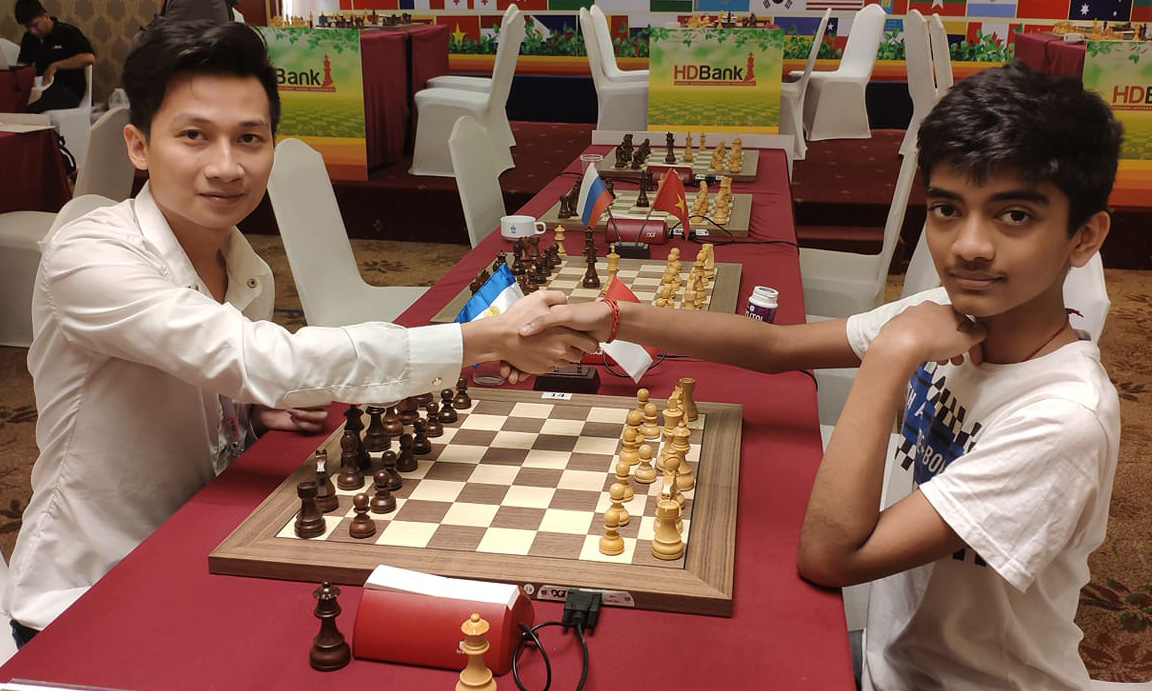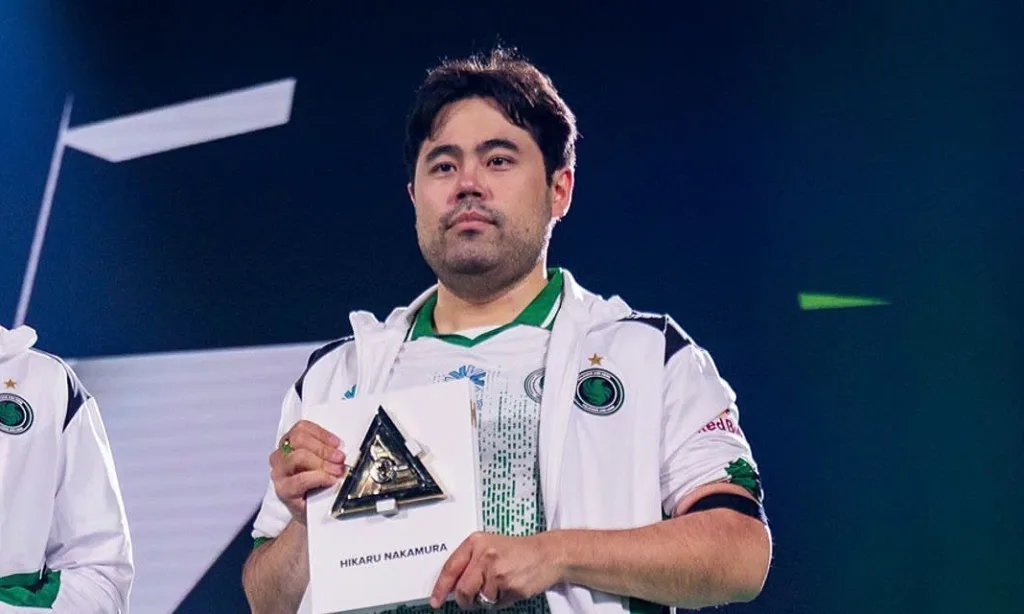At the 2025 Esports World Cup in Riyadh, Hikaru Nakamura challenged the direction chess is heading, especially as it collides with entertainment, esports, and the influence of Magnus Carlsen.
And his words are direct.
“I am concerned that chess is going in a certain direction where Magnus is trying to have his cake and eat it too.”
That quote didn’t come out of nowhere. Nakamura’s concern isn’t about Carlsen’s chess strength. He respects that. But he’s clearly worried about the way Carlsen is shaping the future of chess, blending competition with entertainment, seriousness with showbiz.
Carlsen’s Big Role in New Chess Formats
Magnus Carlsen, the world number one for 14 years straight, is still dominating every format: classical, rapid, and blitz. But in recent years, Carlsen has stepped away from traditional chess titles and focused more on newer formats, like Freestyle Chess and now the Esports World Cup.
These formats are fast. At the EWC, for example, players have only 10 minutes per game, with no increment, meaning the clock doesn’t add time after each move. It’s quick, tense, and favors players who can think and move fast, especially with a mouse. Carlsen, known for his instincts and speed, thrives in such formats.
Reports say Carlsen helped shape the format of both Freestyle Chess and the EWC. The original idea for Freestyle came from German businessman Jan Henric Buettner, but Carlsen has been its public face and main promoter. Many believe his preferences heavily influence how these events are run.
Entertainment vs. Expertise
Nakamura doesn’t oppose change. He helped popularize online chess himself, years ago. But he sees a danger in trying to turn everything into a performance.
In his interview with ChessBase India, Nakamura explained:
“Carlsen is pushing chess in a direction that is half-entertaining, half-serious. Some players here have talked about this.”
It’s a blurry line. Hikaru Nakamura points out that Serious chess needs serious structure: clear rules, fair conditions, and professional organization. And that’s not always what these new events offer.
At the Freestyle Chess Grand Slam in Las Vegas, Nakamura was openly critical. The event allowed spectators to watch games live from close range. Nakamura warned that this could distract players, or worse, lead to unethical situations where fans could potentially feed players computer suggestions.
Now at the EWC, he sees similar risks.
“It’s easy to glance at the audience here,” he said. “The chairs and screens are angled in a way that makes it possible.”
Even though he said he’s more forgiving with EWC, because it’s run by non-chess professionals, his concerns haven’t gone away.
A Conflict of Interests?
Nakamura didn’t accuse Magnus Carlsen of anything wrong. But his comments hint at a deeper worry: Carlsen’s dual role as both player and influencer.
“I feel like Magnus is trying to have it both ways,” Nakamura said. “He wants chess to be viewer-friendly entertainment, but also serious chess.”
In simple terms: Carlsen is playing in events that he helps design. He performs well in these formats, faster, sharper, more exciting, and at the same time, helps create the rules. For some, that’s innovation. For others, it’s a potential conflict.
And Nakamura isn’t the only one who has noticed. He said “some players here” have shared similar thoughts, even if not publicly.
Does Chess Need to Be an Esport?
The EWC is trying to place chess alongside games like League of Legends, Dota 2, and Fortnite. But chess is different. It doesn’t need fast reflexes or shooting mechanics. So why call it an esport?
Nakamura offered one answer:
“If you don’t have mouse skills, if time doesn’t matter, why should chess be a part of the Esports World Cup at all?”
In his view, if chess is going to live in the esports world, it has to feel like an esport: fast, unforgiving, digital. That’s why he supports the no-increment, 10-minute time control. It’s a true test of speed and focus.
Still, he’s not ready to ignore the downsides. Even with fast games and loud crowds, he wants tournaments to protect the integrity of the game.
The Bigger Picture
This conversation isn’t just about Magnus or Hikaru. It’s about what chess should be in the future.
- Should it lean more toward entertainment or tradition?
- Should the best players also shape the rules?
- Can events be both fun for fans and fair for players?
For now, Carlsen is the most powerful voice in chess, and his vision is winning. But Nakamura’s concerns are a reminder: if chess tries to be everything at once, it could lose what makes it special.
As Nakamura puts it, “If you have bad time management, you should get punished. You should lose games.” And maybe, in the bigger picture, the same logic applies to organizing the game itself.
The first Day Chess at 2025 eSports World Cup
Chess action at the Esports World Cup got underway on July 29, with few upsets in the opening round. The 16 players were split into four groups for double-elimination play, and by the end of Day 1, the winners’ bracket had produced four quarterfinalists: Magnus Carlsen, Levon Aronian, Erigaisi Arjun, and Alireza Firouzja. Hikaru Nakamura fell to Firouzja and now finds himself in the lower bracket, but just one win away from joining them in the knockouts.
From the quarterfinals on, the format shifts to single-elimination, with the winner taking home a $250,000 prize—second only to the world chess championship purse, where the title can earn you over $1 million.
Watch chess games at eSports World Cup 2025 live here:

I’m Xuan Binh, the founder of Attacking Chess, and the Deputy Head of Communications at the Vietnam Chess Federation (VCF). My chess.com and lichess rating is above 2300. Send me a challenge or message via Lichess. Follow me on Twitter (X) or Facebook.

